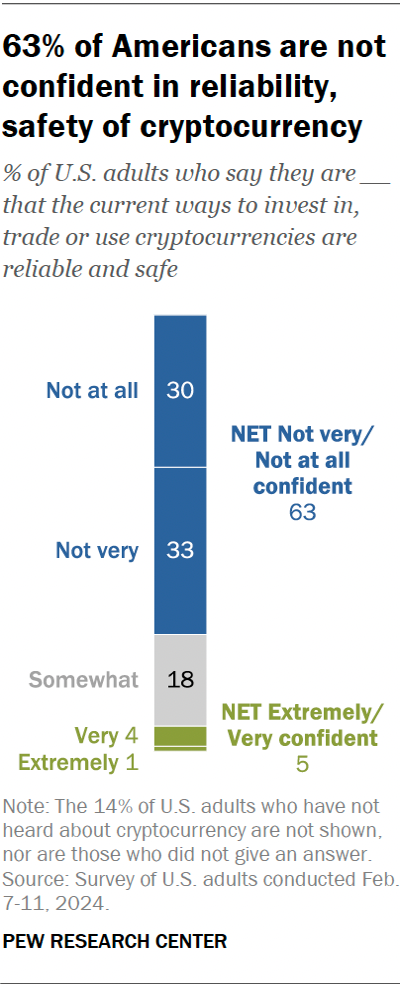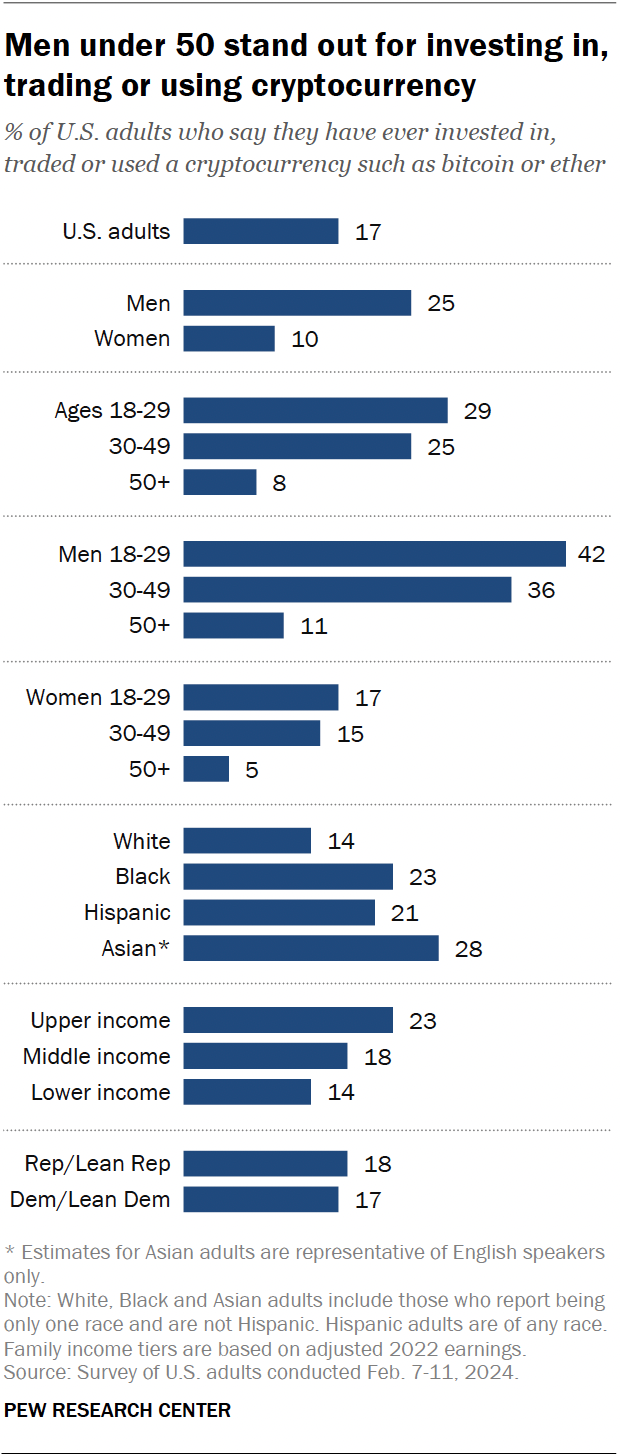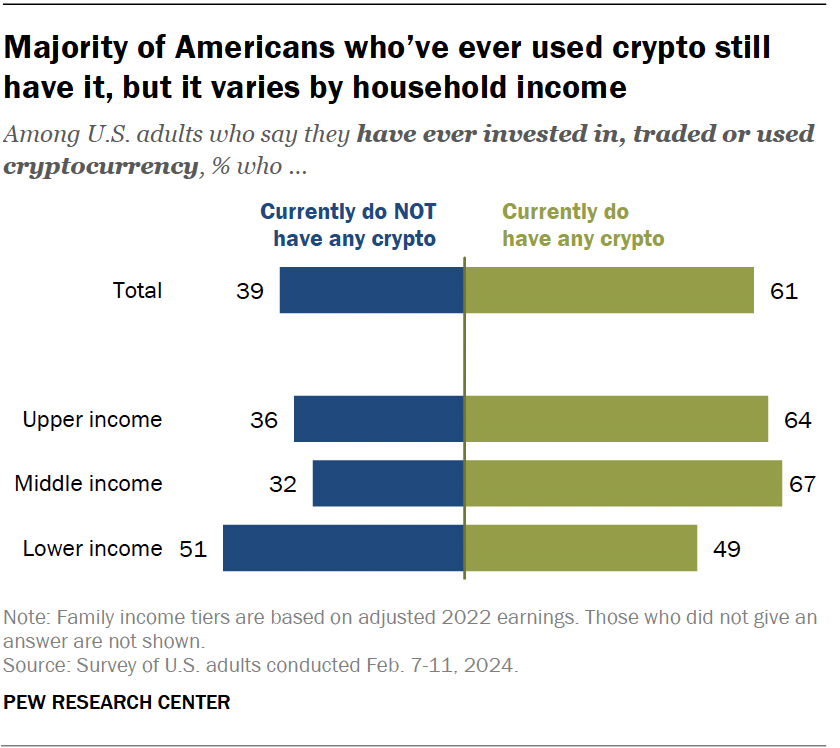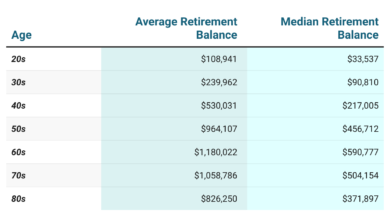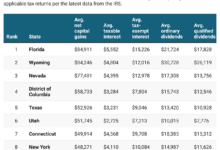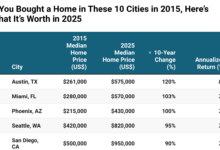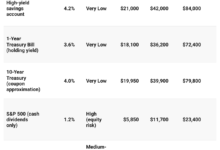63% of Americans are not confident in reliability, safety of cryptocurrency
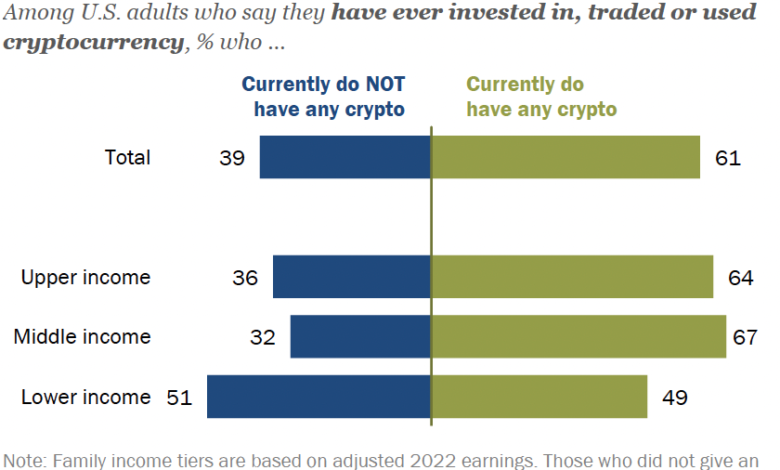
A Pew Research Center survey shows that most Americans lack confidence in the safety and reliability of cryptocurrencies.
A Pew Research Center survey reveals that most Americans remain skeptical about the safety and reliability of cryptocurrency. Around 63% of respondents expressed a lack of confidence, with only 5% reporting strong trust in digital currencies. This skepticism is more pronounced among older adults and non-investors, while current investors show a bit more confidence.
Despite concerns, cryptocurrency usage in the U.S. has remained steady since 2021, with 17% of Americans reporting that they’ve used digital currencies. Younger adults, particularly men aged 18 to 29, are more likely to invest in cryptocurrency, while older individuals tend to be more doubtful of its value.
Income also plays a significant role, with higher-income earners more inclined to engage in the crypto space, compared to those with lower incomes.
In terms of race and ethnicity, Black, Hispanic, and Asian adults report higher engagement with cryptocurrencies compared to White adults. These groups have been more active in adopting cryptocurrency as a form of investment, though concerns about its volatility remain widespread.
The survey highlights that public awareness of cryptocurrency is high, but most people still don’t fully understand how it works. Many who have used cryptocurrencies have reported losses or haven’t seen any significant financial gains, adding to the wariness surrounding the industry.
Furthermore, highly publicized collapses of major crypto platforms and increasing regulatory scrutiny have contributed to this skepticism.
Even though cryptocurrency remains a topic of interest and investment among certain demographic groups, broad public confidence in its safety and reliability has not materialized. The future of cryptocurrencies depends on whether these concerns can be addressed, particularly through clearer regulations and better security measures.

